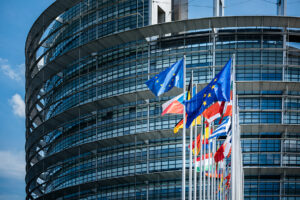EU approves Net-Zero Industry Act

The Net-Zero industry Act, already informally agreed upon with the Council, sets a target for Europe to produce 40% of its annual deployment needs in net-zero technologies by 2030, based on National Energy and Climate Plans (NECPs) and to capture 15% of the global market value for these technologies.
Technologies to be supported include all renewable technologies, nuclear, industrial decarbonisation, grid, energy storage technologies and biotech.
The law will simplify the permitting process, setting maximum timelines for projects to be authorised depending on their scope and output.
The agreement provides for the creation of Net-Zero Acceleration Valleys initiatives, speeding up the permitting process by delegating parts of the evidence collection for environmental assessments to member states.
The European Parliament adopted in plenary with 361 votes in favour, 121 against and 45 abstentions.
“This vote is good news for European industry and sets the tone for the next term. To achieve all our economic, climate and energy ambitions, we need industry in Europe. This Act is the first step to making our market fit for this purpose,” said NZIA Rapporteur Christian Ehler MEP (EPP, DE).
Bioenergy Europe said it is glad to see that all the technologies used for production of energy from renewable sources, as defined in the Renewable Energy Directive, are included in the definition of net-zero technologies.
By including biomass technologies, the legislator acknowledged the essential role biomass will play in ensuring the energy transition and increasing the resilience of EU economy, said the association.
It added that the European bioenergy sector further welcomes the inclusion of carbon capture and storage technologies (CCS) in the definition of net-zero technologies.
This makes it possible for CCS-based removal methods, such as bioenergy with carbon capture and storage (BECCS) to fall within the scope of the regulation.
Nevertheless, Bioenergy Europe regrets that carbon dioxide removal (CDR) is not included in the list.
“Europe is unquestionably a leader in bioenergy technologies on a worldwide scale. European companies are at the forefront of deploying cutting-edge bioenergy solutions provided by European technology pioneers," said Ennio Prizzi, Bioenergy Europe policy officer.
"This makes bioenergy a local and sustainable solution that can greatly reduce CO2 emissions. It is key for the EU to support the sector to scale up if the Union is to achieve net-zero by 2050.”


















